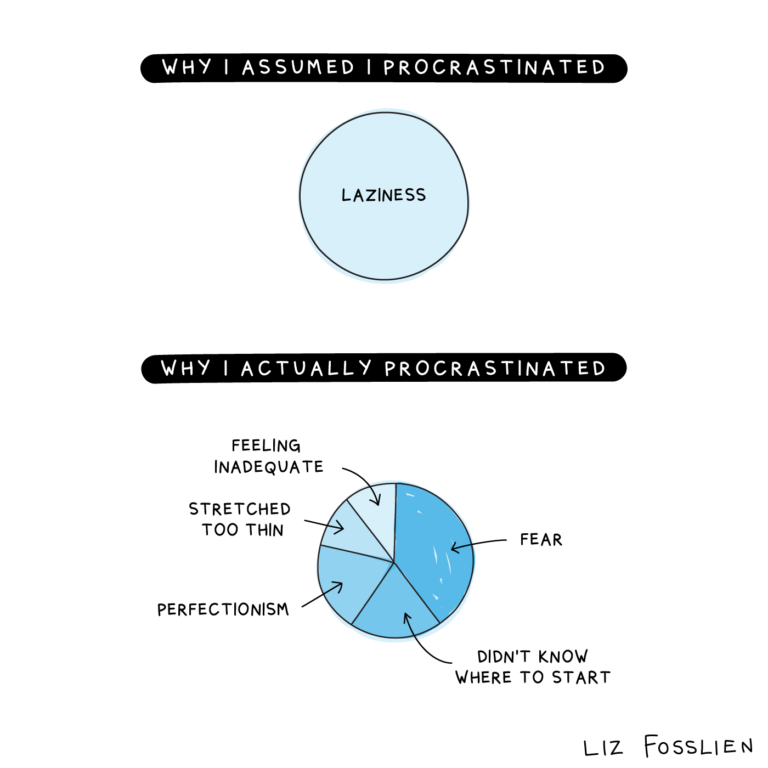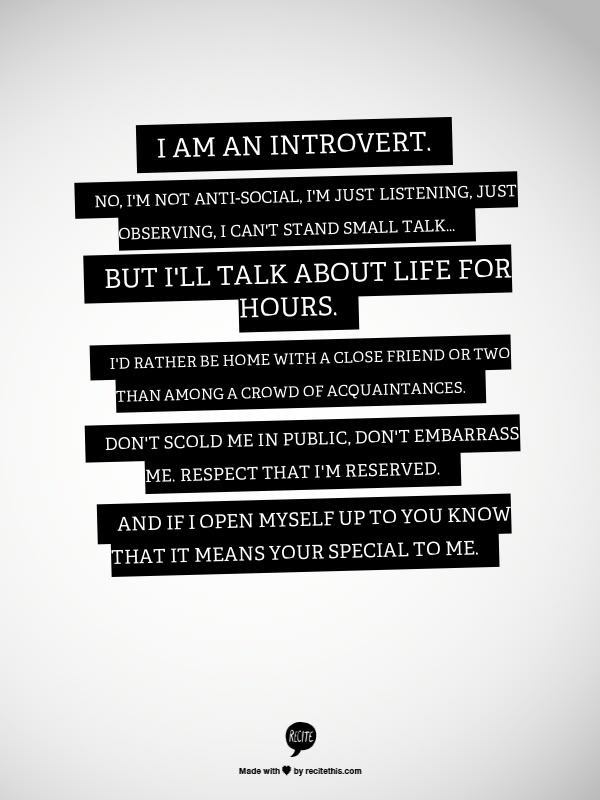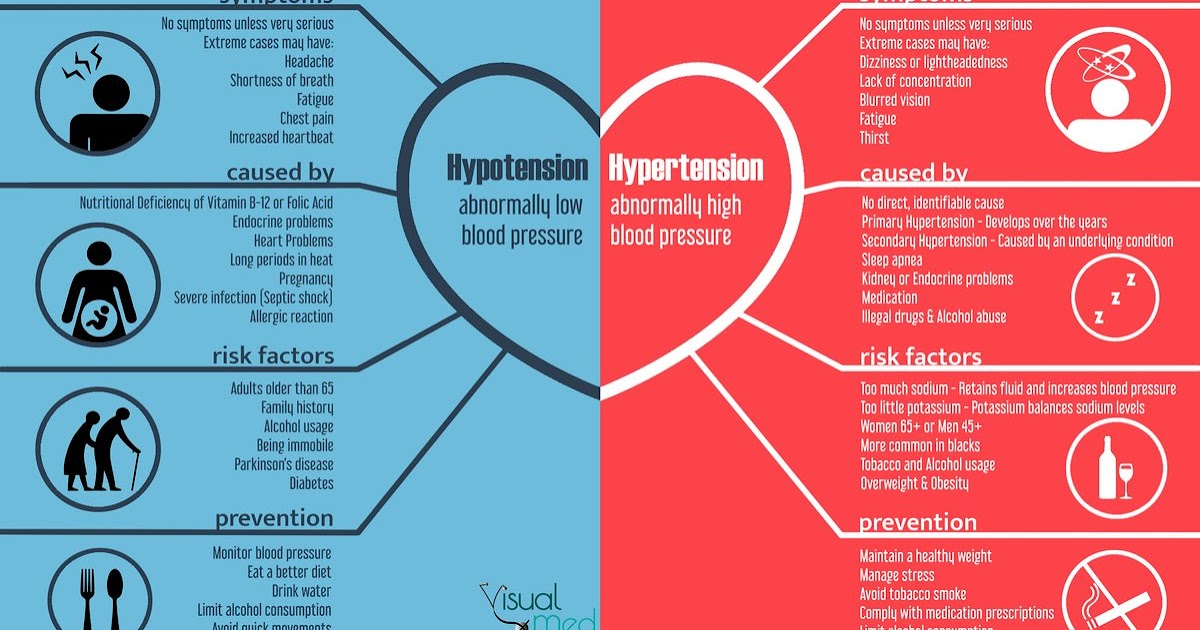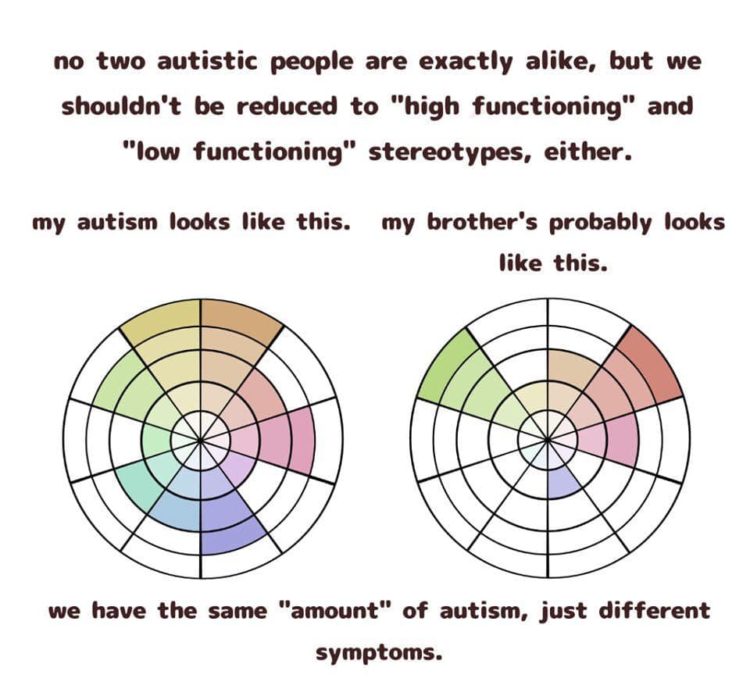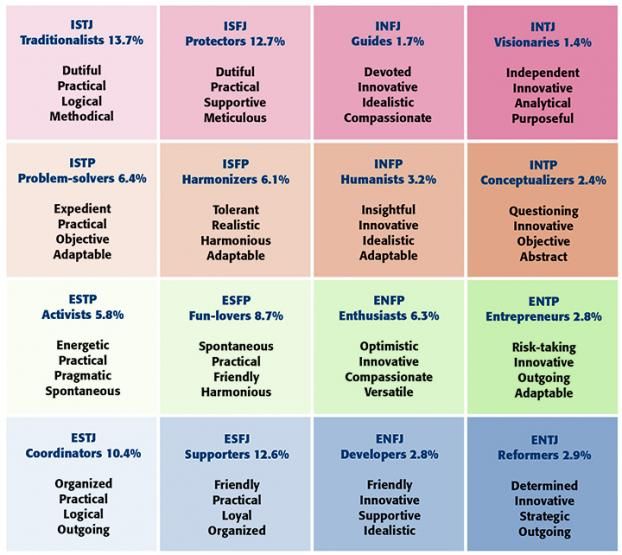Borderline personality disorder discard
Why do borderline’s discard? - Somatic healing and relationship counselling
Why do borderline’s “discard”? (Narcissistic & Borderline Personality Disorder Relationships)
The sudden discard is perhaps one of the most difficult things to recover from and make sense of if you are on the receiving end.
Everything is great. Your borderline partner loves you and you are planning your future together and suddenly out of the blue, they break up with you often by text and then you are discarded.
They might block you and simply go no contact. They will seem cold and numb and like they feel nothing even though they last week said you were the love of their life.
In many cases, they have lined up a replacement for you instantly.
You are in shock and pain. What happened?
We just talked about moving in together last week.
Borderline’s go through the stage’s idolization, where they mirror you and seem to be interested in things you are in to and they seem like the perfect match.
They love-bomb you with affection and make you feel special. You are the love of their life; they want to spend their life with you. It gets intense very fast.
But eventually normally after the honeymoon stage they realize the fantasy they have created in their mind of you being perfect is not true, or they perceive something you do, say or don’t do as abandonment, or you simply got to close so they go to stage two devaluing.
Here splitting become apparent as they now go from idolizing to the opposite and often start putting you down and gaslighting you.
Eventually they will discard you. It is a matter of when unless you leave beforehand.
The big question we all have is, but why do they do this?
As you might know from my other videos they struggle with emotional regulation and feel emotions very intensely.
They also struggle with constancy meaning they only perceive what they feel in this moment to be real so your previous history and how they felt about you last week matters little.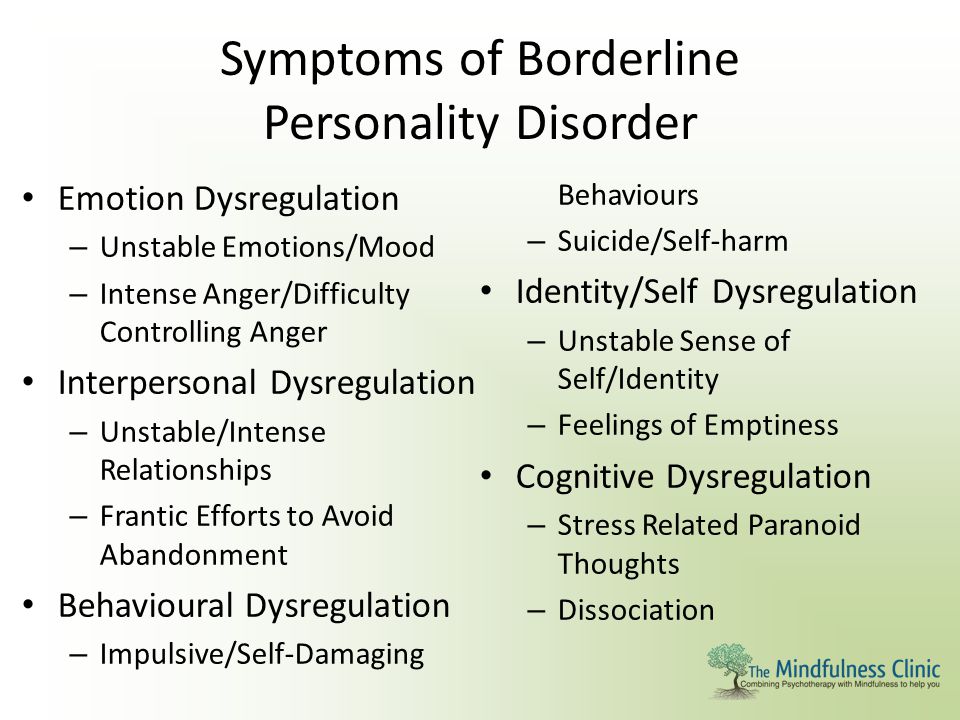
Because they split and see the world as black or white, good or bad when triggered it also means they can only see themselves as either good or bad so accepting responsibility would make them feel all bad and no one wants that so they blame it all on you and need to push you away before leave them.
Their lack of emotional regulation and the intensity of their emotions mean that when the fear of engulfment or abandonment is triggered they can’t cope with the pain so they need to get you away and for them out of sight out of mind making it easier for them to not have to take responsibility and feel less pain by discarding you.
Their cognitive empathy is also impaired so they can see very cold and seem to not care an all about the pain they are causing you.
Because they also struggle with self-identity, and self-regulation they often line up someone new immediately to replace you to make them feel less pain.
The same pattern will repeat itself with the new guy so trust me he will through all the same pain you went through and the person you miss was not real.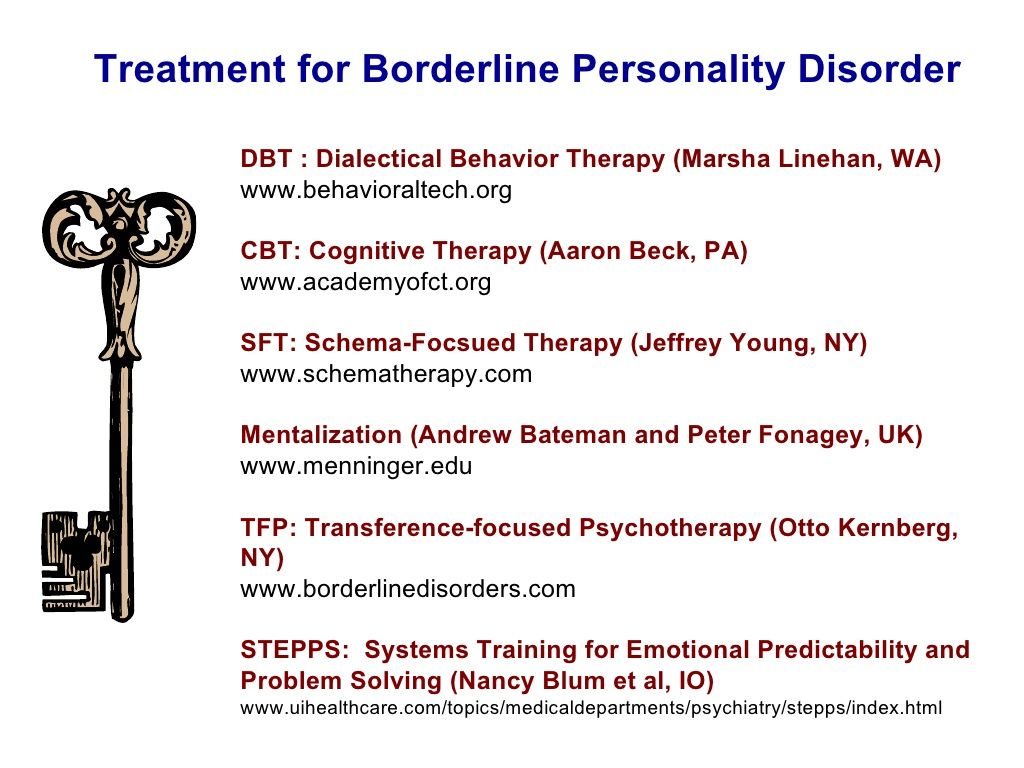 It was a tempoery fantasy they created for you using mirroring and love-bombing.
It was a tempoery fantasy they created for you using mirroring and love-bombing.
You are the source of your happiness as it was your brain chemicals that made you feel happiness so now you need to uncover the needs she fulfilled and find other ways to get there needs meet.
I will talk about self-love in another video.
You will likely be stuck in an addictive response making you want to go back to your ex BPD because the push pull created the response of addiction in your brain.
To break this, you must go no contact and block them everywhere. In neuroscience there is a saying what fire – wire so the more you go back and keep contact the more those neurons fire and the stronger they get so it gets harder and harder.
And no, it will never go back to the idolization stage again.
Also remember she is not your happiness; she was the external trigger for YOU feeling that way. YOUR brain made you feel that way, so your happiness is still with you.
After the no contact it’s important to fill your day with people and activities you enjoy even if you don’t feel like it.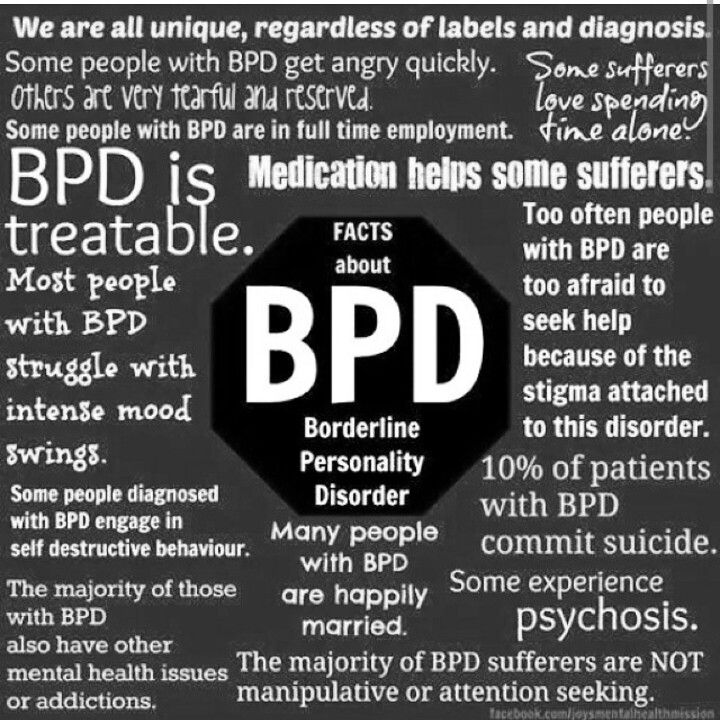
Spend time with people that support you. Get a therapist and learn about what made you recitable to someone with BPD.
If you are stuck in depression or obsession then go speak to your doctor and it might be good to get some medicine that can help you get within your window of tolerance so you can do the things that will help you recover.
We are social creatures and heal better socially that’s a scientific fact.
And watch my video on self-love.
You will get better if you follow these steps…
The pain feels like it will last forever but it will not. It took me a month and a half to get out of the FOG and feel happy again simply by using the framework I teach.
Check out the Toxic relationship recovery program
Get the one-hour free webinar, packed with practical scientific relationship tips that work
Don’t forget to subscribe to this channel and share it with your friends and to get free weekly interviews with top relationship and sex experts to follow our podcast on iTunes
or on Spotify
Do borderlines come back after discard?
Borderline personality disorder patients are extremely sensitive individuals, so do borderlines come back after discard? How to get back with my ex borderline? To understand this let’s first understand what is borderline personality disorder.
Table of Contents
A brief overview of Borderline Personality Disorder
Even the smallest of things can trigger extreme reactions in BPD (borderline personality disorder) patients. Once agitated they will have trouble calming down. This type of emotional volatility and inability to pacify oneself leads to relationship disasters and even reckless behaviors. Do borderlines come back after breakups? People with borderline personality disorder cannot tolerate being abandoned and thus generate crisis by making self-injurious gestures (mostly suicidal) in such a way that invites someone to rescue and give attention and care for them.
Seventy-five percent of patients diagnosed with this disorder are females. About 8-10 percent of BPD patients commit suicide.
So how do people describe BPD?
Loved ones of the people suffering from BPD describe it as “walking on eggshells” while the BPD patients describe it as feeling like a “live wire” with everything affecting them acutely.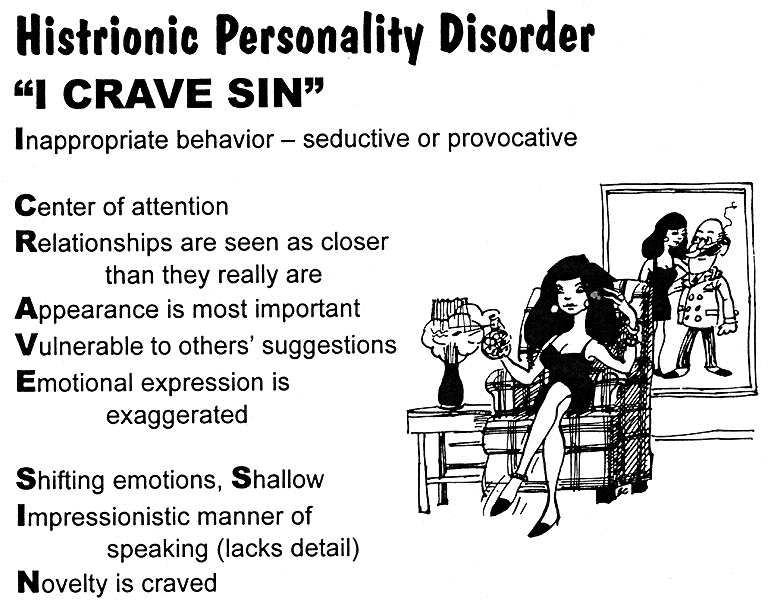
Symptoms of Borderline personality disorder
- The constant fear of abandonment, taking extreme measures to avoid real or perceived separation and rejections.
- Emotional instability-frequent mood swings
- Identity Problems and affective instability
- Insecurity
- Feeling worthless
- Suffused with anger, fear, and guilt
- Impulsive Behavior
- Occasional psychotic decompensation
- Relationship troubles -Intense but unstable relationship
- Self-injurious behavior (suicidal thoughts are a serious problem)
- A high drug abuse rate
- There is extensive overlap with other diagnostic categories, particularly mood disorders and Post-traumatic stress disorder.
How borderline personality disorder affects relationships?
People having borderline personalities fear rejection, disaffection, and indifference which makes it difficult to have a relationship with them. Do borderlines come back after breakups? According to the Journal of Personality Disorders, Borderline Personality Disorder patients need to feel close but at the same time fear rejection.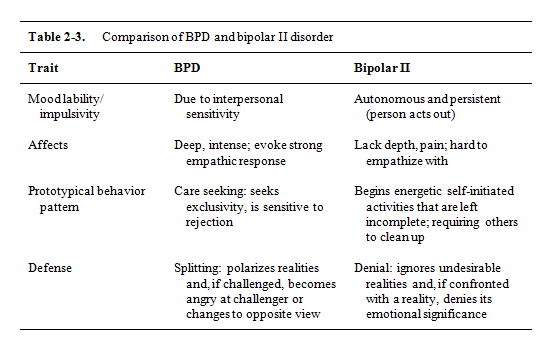 This can be quite troublesome in maintaining romantic, platonic, or professional relationships. The people close to borderline personality disorder patients like husbands, wives, friends, family members, and other loved ones find it hard to have close relationships.
This can be quite troublesome in maintaining romantic, platonic, or professional relationships. The people close to borderline personality disorder patients like husbands, wives, friends, family members, and other loved ones find it hard to have close relationships.
Do borderlines come back after discard?
Does your partner want to be “saved” repeatedly or feel entitled to being saved? If yes then each time you give in to their demands, you reinforce their opinion of being right.
How long before BPD comes back?
Borderline personality disorder individuals see things in black and white. If they feel hurt, abandoned, or perceive as being left out by someone in some way. They will view that person as “All Bad” and it becomes hard for them to maintain close bonds with them. This often leads to impulsively ending the relationship with their partners or family members. Now you’re wondering, the ex ignored me and now sends me mass emails. So how long before BPD comes back? The answer is, that they may quickly swing back when they start feeling lonely or miss you and then they start believing you are “All Good”.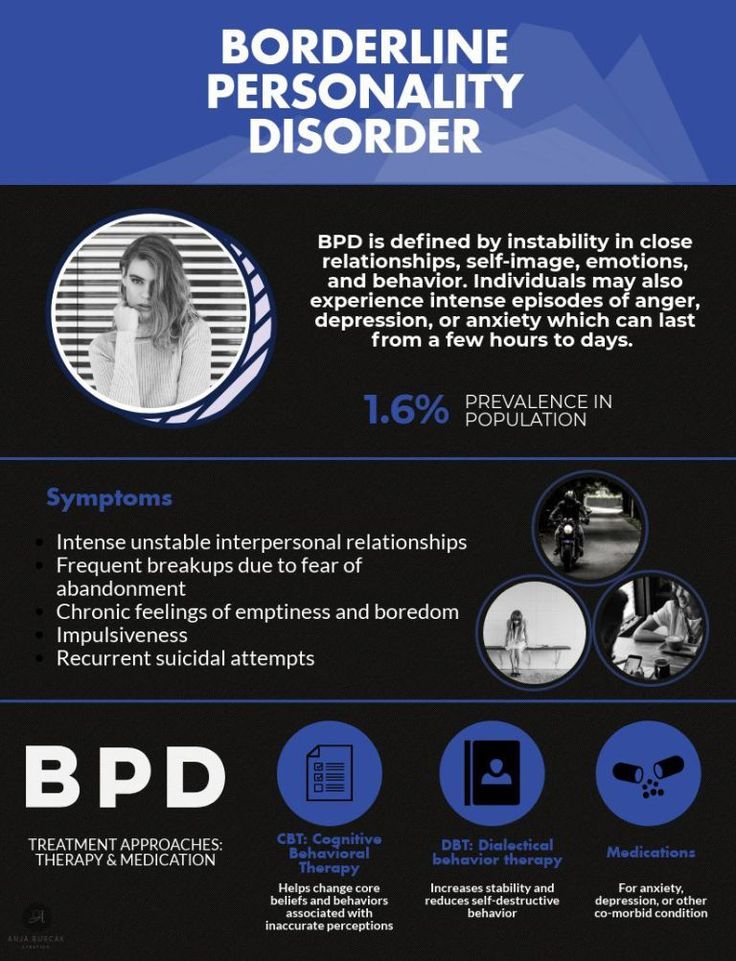 But what if the ex left and never looked back? Sometimes they may find your “replacement” and they will not need you. Wondering why BPD’s ex-girlfriend has a new boyfriend? They will say goodbye due to fear of “engulfment” and at other times when they feel “abandoned,” they will come back.
But what if the ex left and never looked back? Sometimes they may find your “replacement” and they will not need you. Wondering why BPD’s ex-girlfriend has a new boyfriend? They will say goodbye due to fear of “engulfment” and at other times when they feel “abandoned,” they will come back.
Read More about Borderline Personality Disorder Mirroring
Factors affecting BPD behavior of discarding someone
Do borderlines come back after discard? Below are two factors affecting this type of behavior in BPD patients.
Past childhood experiences
Borderline personality disorder patients mostly come from a very unstable childhood, where they rarely believe and cannot depend on their caregivers to be loving, caring, and understanding of them. Mostly they are left by those caregivers. They subconsciously repeat this type of behaviour in their adult relationships. Thus BPD too discards their loved ones. Reports suggest that 70 percent of BPD patients were abused in their childhood.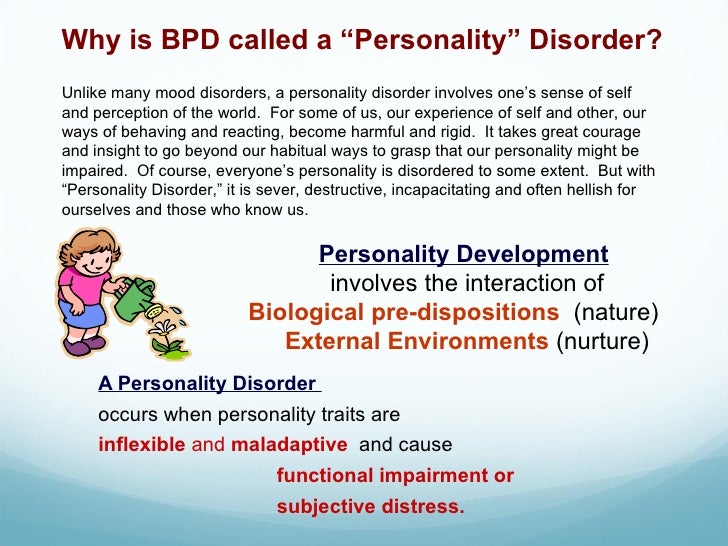
Avoidance of feeling “ALONE”
Their biggest fear is being abandoned even if they were the first ones to leave their loved ones. Do borderlines come back? Borderline personality disorder patients can sometimes come back and start getting clingy to their partners as they fear being forsaken and it will thus trigger past painful experiences from their childhood or they might fight and then cut you off only to cling to someone new to avoid feeling lonely and empty.
Helping someone with Borderline Personality Disorder
- Take care of yourself
You want to help him/her but first, you need to take care of yourself. When a family member or spouse or partner has BPD, it’s too easy to give in to all his/her demands. This need to please them is downright exhausting. Why do you need to always put their demands above your own emotional needs? This leads to resentment, burnout, depression, anxiety, regrets, and even physical illness.
- Don’t Isolate yourself
Even if your family member or significant other with BPD forbids you to contact other people for help.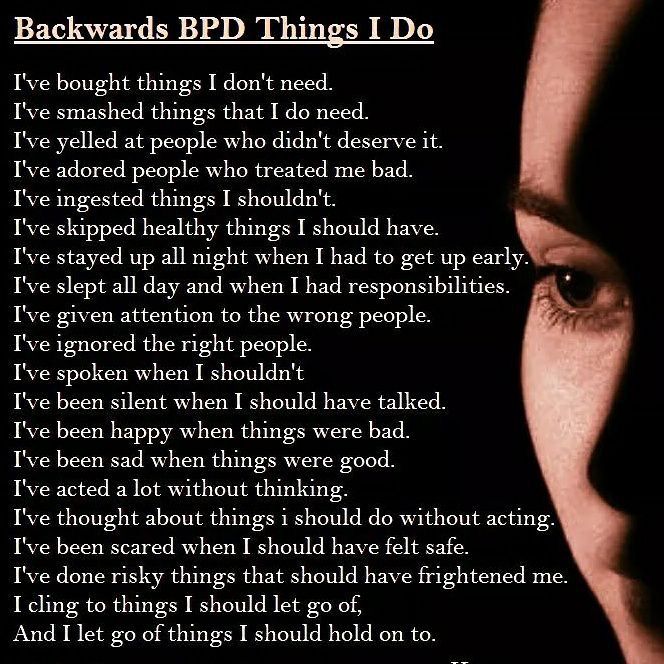 Stay in touch with family and friends. They are the people who listen to you, support you, and make you feel good no matter what. They also offer reality checks whenever you need them.
Stay in touch with family and friends. They are the people who listen to you, support you, and make you feel good no matter what. They also offer reality checks whenever you need them.
- You can have fun in life too
Have a life outside of your relationship with a person with a borderline personality disorder. You are not being selfish for having some fun in life too. If you are healthy it will beneficial for your relationship with the person having BPD.
- Join a support group
Through a support group, you will get to know other people going through similar situations in life and how they are dealing with them. The need to be understood is oftentimes underrated but is very important for human beings. If it is not possible to join a support group in your area then join an online BPD community.
The relationship chaos can cause you to neglect yourself. You need to avoid this and eat healthily, exercise daily, and get quality sleep at night so that you can handle all the emotional ups and downs.
- Manage your stress
Don’t blame yourself or feel guilty for the self-injuries of the BPD patient. It is very easy to judge yourself, think their abusive behavior is justified, or feel responsible for them or any failure or relapse in treatment. You must always remember that the person with BPD is responsible for their actions and behavior. Do borderlines come back after discard? You didn’t cause it or can control nor can cure it.
Some important points for setting boundaries with BPD patients
It is the most misunderstood mental illness of all and is often confused with bipolar disorder. An estimated 2 percent of the population has BPD. The emotional outbursts and risky behaviors often displayed by one with BPD are worrisome to many families. Thus learning to help and support the person suffering from BPD would require the firm setting of boundaries and adhering to them strictly. This helps in dissolving many conflicts and arguments quickly.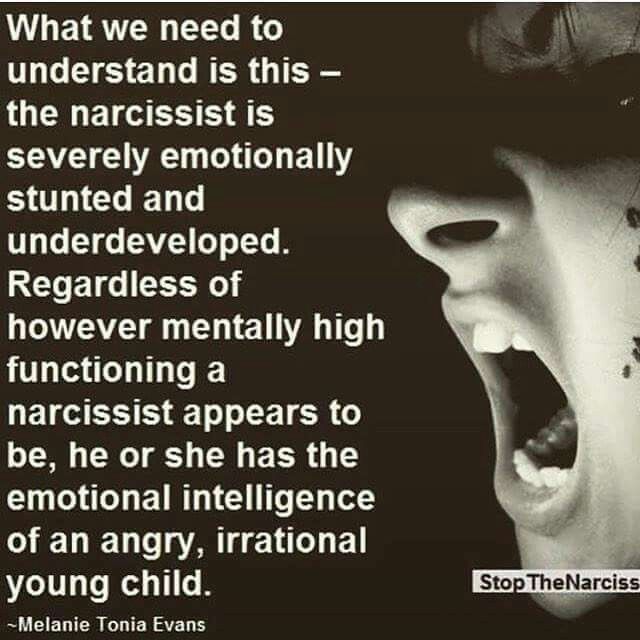 For setting these boundaries certain points are necessary to keep in mind.
For setting these boundaries certain points are necessary to keep in mind.
Don’t feed into the need for attention
Some people with BPD may seek validation from others. They often use triangulation which is bringing three or more people into an argument to validate or get attention. Seeking validation from people you trust is ok but it becomes a problem when they want to support and validation for doing things that aren’t ok.
Don’t let them create drama
The BPD individuals don’t want to solve problems with the person the problem started with but rather gossip with others who will then feel compelled to get involved and thus causing huge chaos. To avoid this kind of triangulation don’t discuss your problems with those who have nothing to do with it.
Don’t give them power over you
Do borderlines come back after discard? Well BPD people struggle with their explosive anger. They are unable to manage their impulsivity. If you are feeling not valued or respected enough. Then you need to show your displeasure to them even if they threaten to leave you. You need to create boundaries to make it clear that they are not allowed to be abusive to you. If they still don’t agree, gradually distance yourself until they agree for boundaries to be set.
Then you need to show your displeasure to them even if they threaten to leave you. You need to create boundaries to make it clear that they are not allowed to be abusive to you. If they still don’t agree, gradually distance yourself until they agree for boundaries to be set.
Set a routine and habits
Set certain rules such as calls after set hours will not be entertained. Unannounced visits or borrowing your possessions and never returning them, driving your car, and then keeping it, etc will not be tolerated.
Be a 2 AM person but with some rules
Being the “go-to person” or “2 AM friend” can be quite flattering. It makes you feel loved and respected. It will also make you the most easily available person to be manipulated by individuals with BPD. It’s wonderful to be needed but with certain boundaries.
Try to be a stoic
You shouldn’t behave as they expect you to rather don’t give any strong reactions to them. Don’t let anything manipulate, control, or dominate you.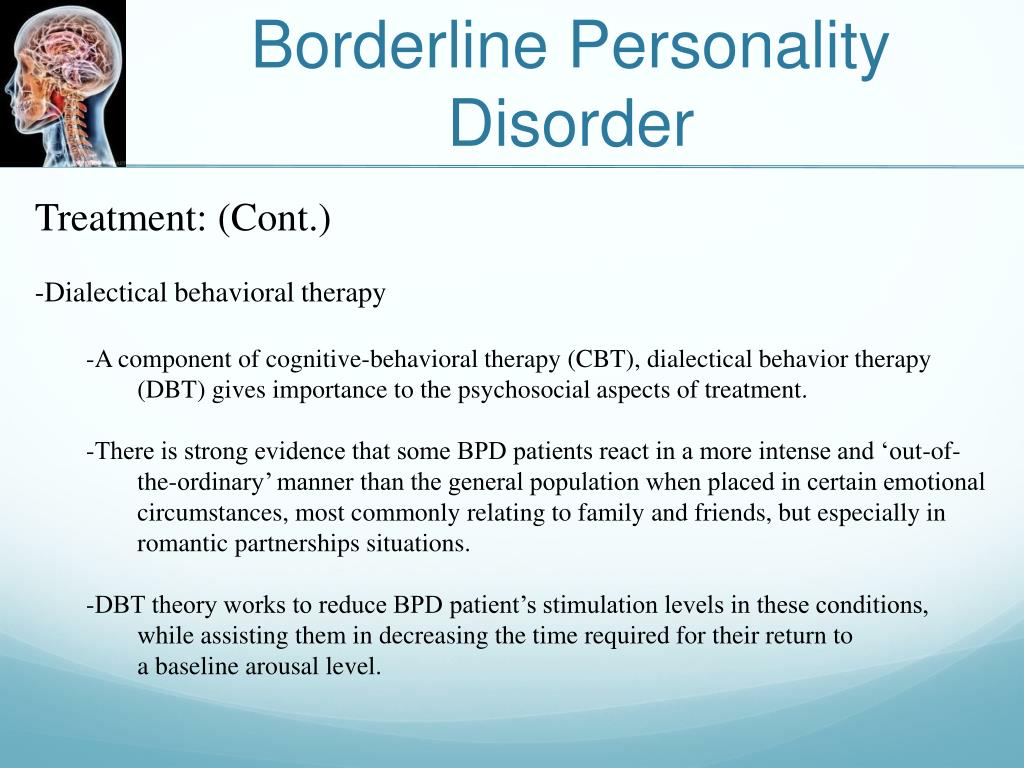
Avoid the chaos cycle
If there is a pattern to the chaotic cycles that is if they happen during festive seasons or anniversaries then disrupt the cycle by deterring it, blocking it, or switching the plans.
Don’t normalize the sexually promiscuous behavior
Some people with BPD can engage in risky behaviors or behave inappropriately to make matters worse. For example, if a person indulges in frequent drinking of alcohol or has multiple intimate affairs despite being married. Then instead of thinking do borderlines discard their family? You shouldn’t be scared and insecure and normalize this behavior in an effort that the BPD patient doesn’t feel negative or bad about himself/herself.
Don’t underestimate your intuition
If you feel something is wrong then most probably something is wrong with your loved one. Everyone gets angry and overreacts at some point in life but if these are repeated, intense explosive episodes then attention must be paid to this behavior.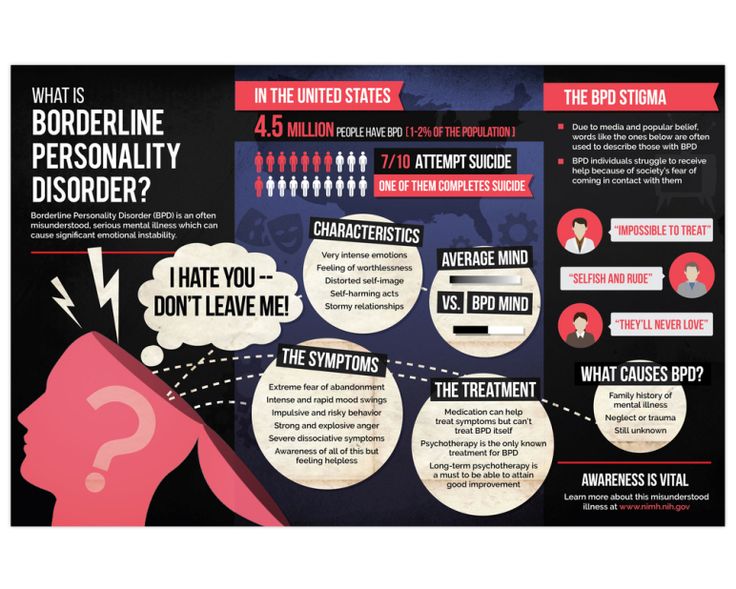 You are not being helpful by thinking of it as an insignificant thing.
You are not being helpful by thinking of it as an insignificant thing.
Unsubstantiated fears of abandonment
Most BPD patients have an intolerance to loneliness. This leads to unhealthy patterns in their behaviors. There are many manipulative things BPD say. So be careful while responding to these fears. Comfort them without reinforcing these fears or enabling their behavior.
Two ways of treating BPD patients are
- Dialectical Behavior Therapy (DBT)
- Cognitive Behavioral Therapy (CBT)
Conclusion about “do borderlines come back after discard ?”
So, do borderlines come back after discard? It is important to remember that just because there is some shared diagnosis of borderline personality disorder patients, it does not mean they will behave similarly, have the same personality, and temperament, and would do similar things in a given situation. You cannot generalize from a diagnosis to form a theory about specific behavior in specific people.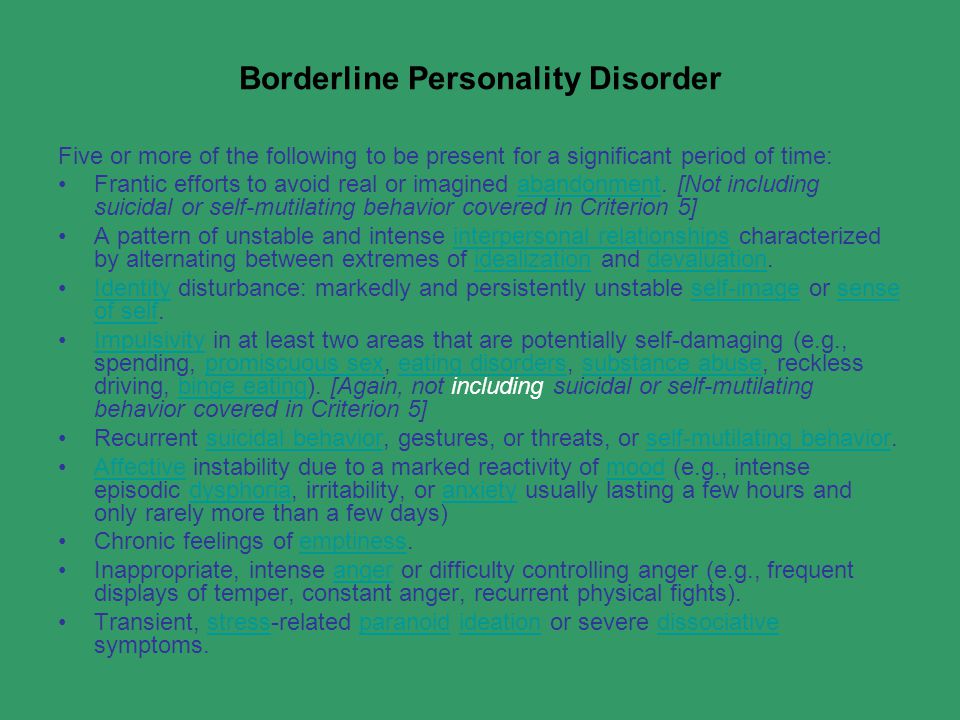
BPD patients are more likely to return than narcissistic people. Borderline patients may discard someone permanently if they find a new person to replace and attach to avoid negative feelings of loneliness and emptiness triggered in them.
Borderline personality disorder people are more likely to come back than narcissistic people because they know the pain of being abandoned through their childhood experiences.
The best way to predict how a borderline personality disorder patient would behave is to notice how they behaved in the past. If they have the pattern of leaving and devaluing their partners then there are very high chances of that happening again. Despite challenges recovering from BPD is still possible but it requires a lot of hard work and a will to change.
Disclaimer
The content of the “do borderlines come back after discard?” article has been developed by third-party medical content writers and/or experts. The information mentioned in the article is only for educational purposes and therefore it is requested to consult a doctor/ physician before diagnosing and deciding the treatment plan.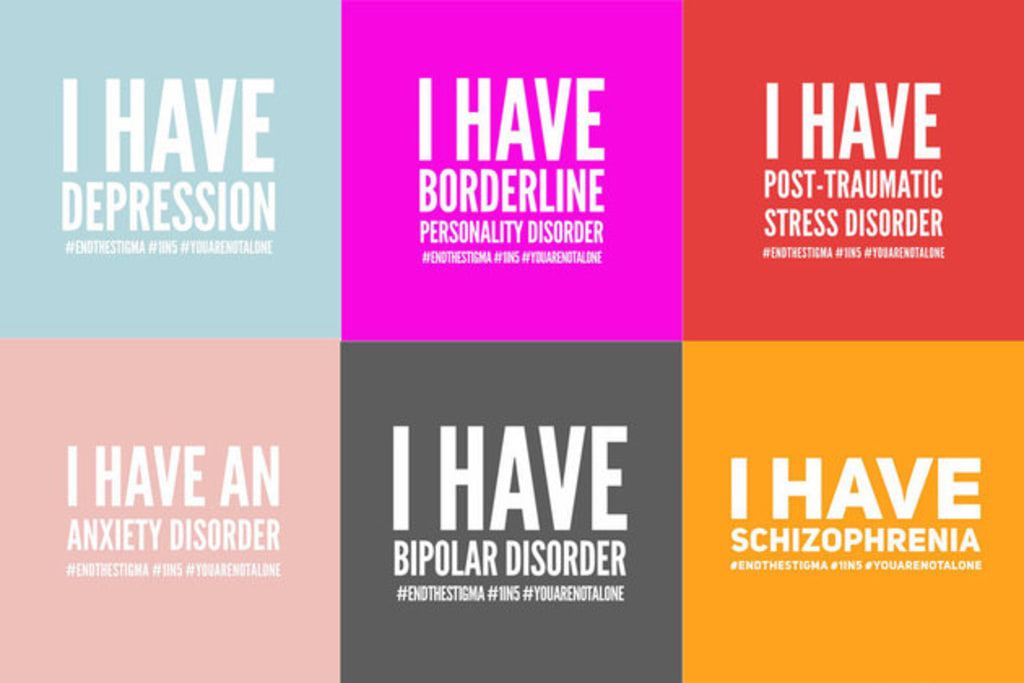
Healthoplane, its Licensors nor any third-party content providers do not guarantee the accuracy, completeness, or usefulness of any content. Furthermore, neither Healthoplane nor its Licensors endorse or are responsible for the accuracy and reliability of any opinion, advice, or statement made on this article or any of the Sites or Services. We take no responsibility for your exposure to third-party content on the Sites or the Services. Healthoplane and its Licensors do not assume, and expressly disclaim, any obligation to obtain and include any information other than that provided to it by its third-party sources. It should be understood that we do not advocate the use of any product or procedure described in the Sites or through the Services, nor are we responsible for misuse of a product or procedure due to typographical error.
Consent
By using our website, you hereby consent to our disclaimer and agree to its terms.
How to stop borderline personality disorder from ruining your life
July 8, 2021 Likbez Health
Perhaps illness is to blame for temper tantrums and failed relationships. And it can be cured.
And it can be cured.
You can listen to this article. If it's more convenient for you, turn on the podcast:
What is Borderline Personality Disorder
This is a serious mental illness. People with borderline personality disorder find it difficult to control their emotions and behavior, build stable relationships, and often have problems with self-esteem. They may also endanger or harm themselves. For example, leaving burns on the skin, having sex with random partners, getting into fights, violating traffic rules. Sometimes it comes to suicide attempts. nine0003
The condition is also dangerous because other mental illnesses may appear along with it. For example, depression, bipolar disorder, eating disorders.
Borderline disorder affects approximately 2% of young people. Most often it is found in women. Men are sometimes mistakenly diagnosed with depression or post-traumatic stress disorder.
What are the causes of borderline personality disorder
No one knows for sure where borderline personality disorder comes from.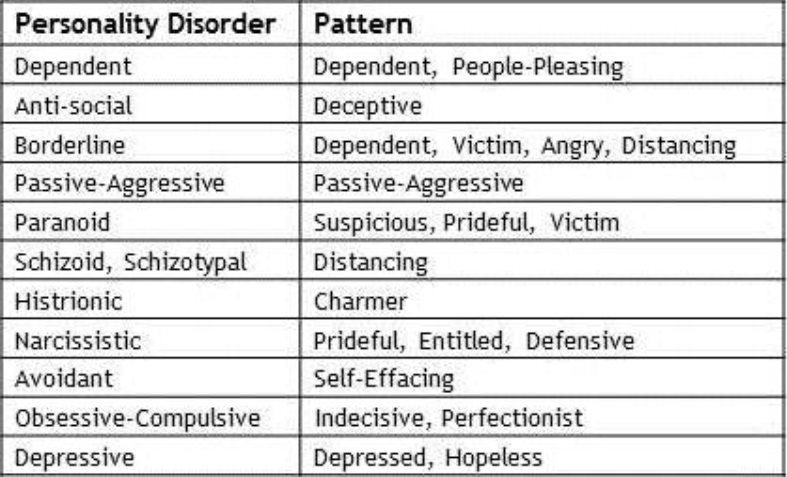 Scientists only suggest that there may be three reasons. nine0003
Scientists only suggest that there may be three reasons. nine0003
Heredity
Those who have relatives with borderline personality disorder are more at risk of getting sick. This is suggested by scientists who interviewed 112 pairs of twins.
Brain malfunction
Research shows that people with borderline disorder sometimes experience structural and functional changes in the brain. This is especially true of areas that control impulses and emotions. There are failures before the disease or because of it, it is not yet clear. nine0003
Surroundings
Some patients say that they experienced stress in childhood. For example, physical or sexual abuse, separation from parents. Others have had toxic relationships or serious conflicts.
How to recognize borderline personality disorder
People with borderline personality disorder are emotionally unstable. As a result, their behavior changes. Here are the symptoms by which you can suspect the disease:
- Sudden mood swings.
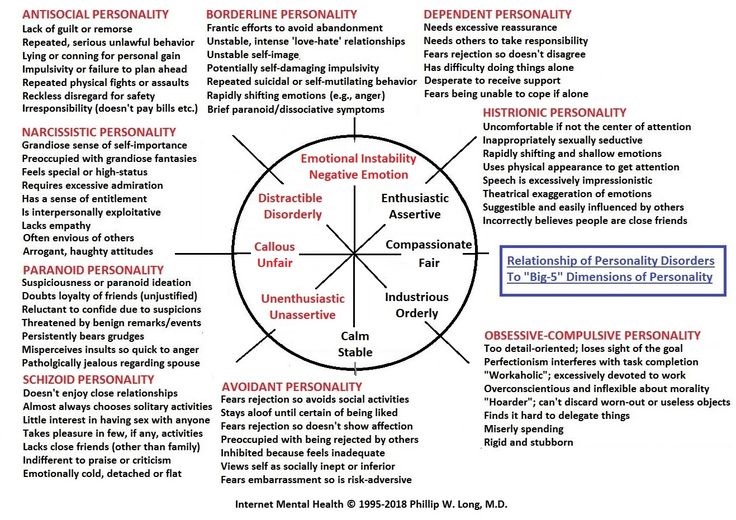 Feelings of happiness, irritability, or anxiety can last from a few hours to several days. nine0041
Feelings of happiness, irritability, or anxiety can last from a few hours to several days. nine0041 - Constant feeling of emptiness.
- Strong or inappropriate anger. The person can be sarcastic, spiteful, and even get into fights.
- Rapid changes in self-esteem and self-identification, goals and values. Just now everything was fine, but after a minute, a person with a disorder considers himself bad or behaves as if others do not exist.
- Unstable relationships with loved ones. A person either idealizes people, then suddenly decides that they do not care about him, or accuses them of something, for example, of cruelty. nine0041
- Fear of being abandoned. In an attempt to avoid real or imagined rejection, a person may quickly start an intimate relationship (physical or emotional) or abruptly end the relationship.
- Impulsive and often dangerous behavior: shoplifting, unprotected sex, traffic violations, overeating, drug use. But if all this manifests itself when a person is in a good mood, the symptom indicates rather a mood disorder.
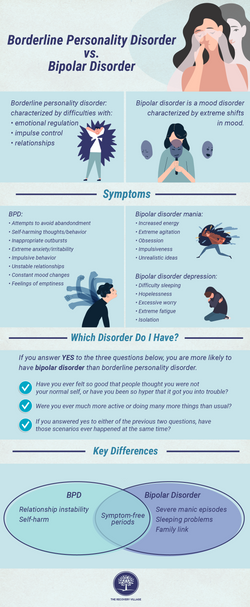
- Feeling of dissociation. In this state, it seems to a person that he is as if torn off from the body and looks at himself from the side. And everything that happens looks unrealistic. nine0041
- Self-damaging behavior. A person can cut his own skin and leave burns on it. Sometimes the desire to harm oneself comes to suicide attempts.
- Attacks of paranoia. A person with a disorder often worries that people around them don't really like them and don't want to spend time together. Even if it's not.
Not all people with borderline personality disorder experience the full list of symptoms. Trifles can call them. For example, a business trip of a loved one. The severity of the manifestations and their duration depend on the person. nine0003
What to do if you have suicidal thoughts
If you are thinking about hurting yourself or killing yourself, get help. It can be obtained in several ways:
- Call the hotline of the Center for Emergency Psychological Assistance of the Ministry of Emergency Situations of Russia: +7 (495) 989-50-50.

- Contact a psychologist on the Ministry of Emergency Situations website.
- If you live in Moscow, dial 051 from a landline or +7 (495) 051 from a mobile. nine0041
- Leave a request on the website of the Moscow Service for Psychological Assistance to the Population. The specialist will advise you, even if you do not live in the capital.
- Call your psychologist.
- Contact a loved one. It could be a friend, relative or loved one.
How borderline personality disorder is treated
Different. First of all, you need to contact a therapist. They will take a complete medical history and may order a blood test or X-ray to rule out physical causes of symptoms. nine0003
If everything is in order with the body, the doctor can send the patient to a psychotherapist or psychiatrist. He will talk with the person, find out if there were mental illnesses in the family. Recognizing borderline disorder can be difficult due to additional illnesses.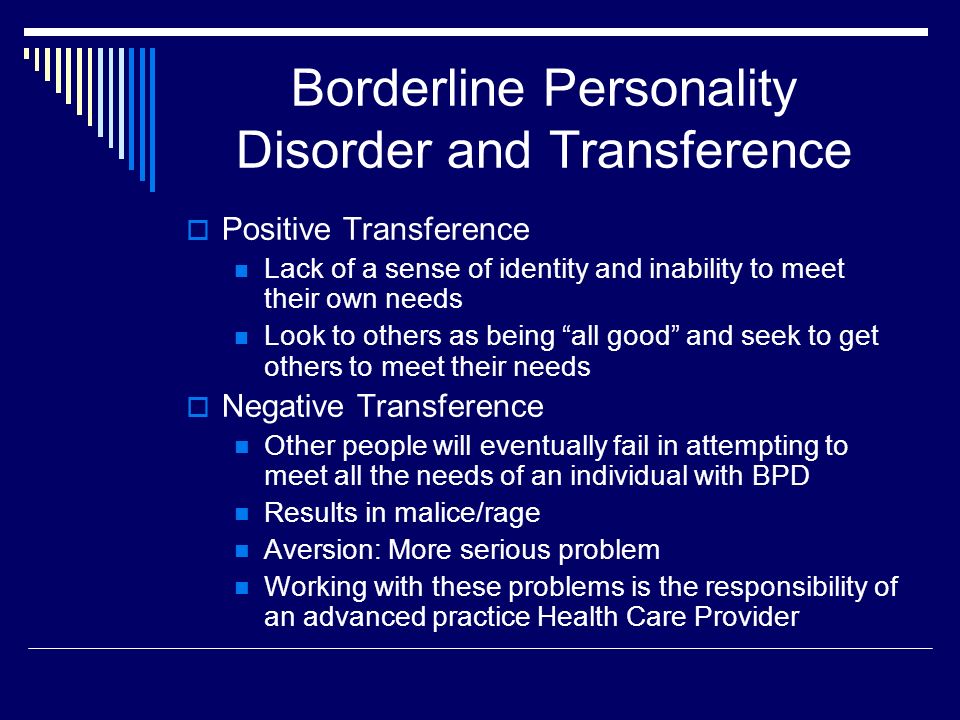 For example, depression or an anxiety disorder.
For example, depression or an anxiety disorder.
Once a diagnosis has been made, the doctor will prescribe the appropriate therapy.
Psychotherapy
Several types of talking therapy have been developed for people with borderline personality disorder:
- Dialectical behavior therapy. Teaches you to control strong emotions and not harm yourself. After treatment, patients often improve relationships with others.
- Cognitive behavioral therapy. Helps people with the disorder find and change beliefs that damage self-esteem and relationships. After classes, patients almost do not feel anxiety and harm themselves less.
- Circuit therapy. It is carried out individually or in a group. Helps to remember the unmet needs that have caused the patient to habituate to inappropriate behaviors. For example, in childhood, a child screamed to draw the attention of his parents to himself. Once it could help, but now it only hurts. In the classroom, a person can learn to behave correctly and achieve goals in adequate ways.
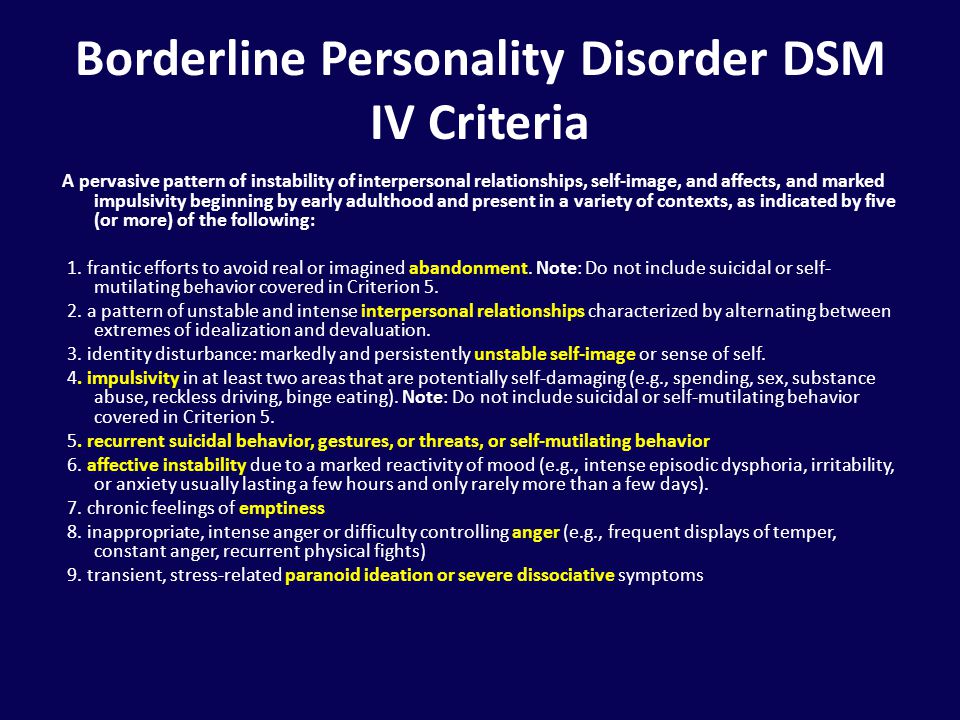 nine0041
nine0041 - Therapy based on mentalisation. Helps patients identify their feelings and emotions and deal with them more calmly. The emphasis is on what a person should first think and then do.
- Systemic Training for Emotional Predictability and Problem Solving (STEPPS). The treatment is designed for 20 weeks and takes place in a group where the patient and his relatives get. It is used as an adjunct to other types of psychotherapy.
- Transference-focused psychotherapy (psychodynamic therapy). During the session, the patient tells the specialist about situations when he behaved aggressively. Together with the doctor, the patient is looking for other behaviors, and then tries to apply them in life. nine0041
- General psychiatric department. Treatment takes place during work or study. The patient himself tries to catch and comprehend emotionally difficult moments. A person can also take medications, work with a psychotherapist individually or with his family.
Medications
Medications are not the primary treatment for borderline personality disorder.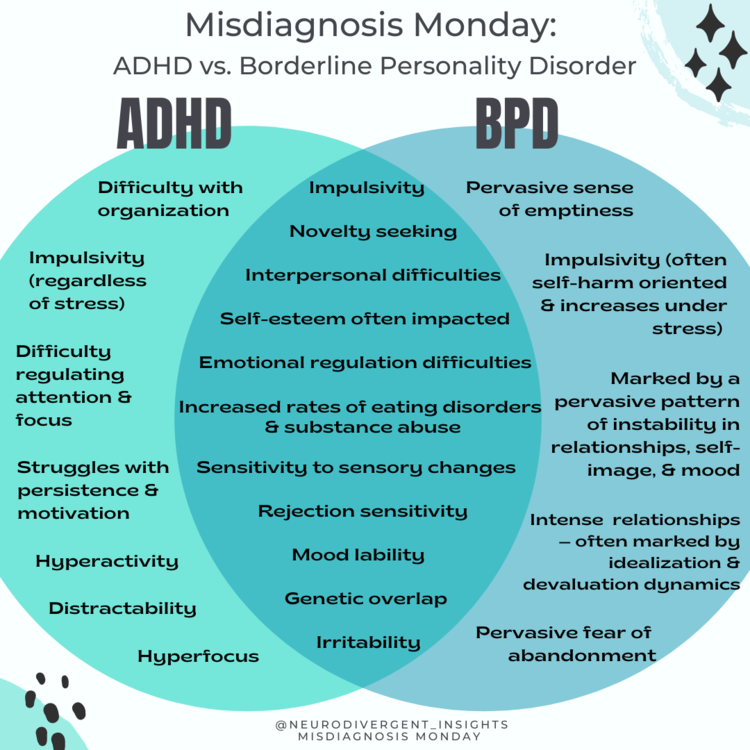 They are prescribed to relieve the patient of symptoms of depression, aggression or anxiety. These can be antidepressants, antipsychotics, or mood stabilizers. nine0003
They are prescribed to relieve the patient of symptoms of depression, aggression or anxiety. These can be antidepressants, antipsychotics, or mood stabilizers. nine0003
Some medicines cause side effects. The doctor will tell you what to expect from a particular drug.
Hospitalization
Sometimes patients with borderline personality disorder require treatment in a psychiatric clinic. It helps people not harm themselves and get rid of suicidal thoughts.
How successful treatment can be
The outlook for people with borderline personality disorder varies. Recovery is possible, but not always. In any case, it is a slow and difficult process. Some patients, with the help of therapy, begin to lead a normal life and learn how to communicate properly. nine0003
For reasons unknown, the disease tends to burn out. Therefore, sometimes people with the disorder notice that their condition has improved by the age of 35–40.
Living with Borderline Personality Disorder
If you have borderline personality disorder and are already in therapy, don't stop there. Here are a few tips to help you manage your illness so you don't hurt yourself or others:
Here are a few tips to help you manage your illness so you don't hurt yourself or others:
- Learn to recognize what triggers anger or impulsive behavior. nine0041
- Try to get rid of other borderline problems. For example, from alcoholism or drug addiction.
- Ask loved ones to join the therapy. Perhaps they will be able to understand and support you.
- Find people with borderline personality disorder. They can talk about their experience and give some advice.
- Work out a crisis plan with your doctor. That way you'll know exactly what to do if you feel like hurting yourself. nine0041
- Try meditation or breathing exercises. It helps to control emotions.
- Try not to think about what others think of you. It does not matter.
- Try to express your emotions in a way that will not offend others. Maybe sometimes you have to be quiet.
- Think about a healthy lifestyle. Try quitting fast food and start exercising in the morning.
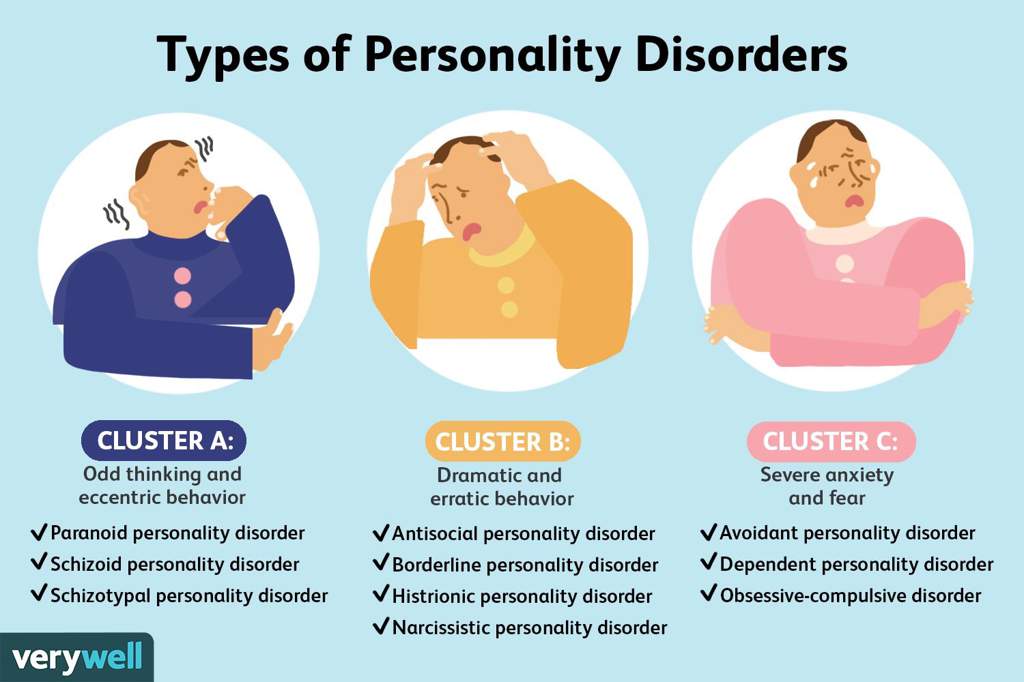
- Do not reproach yourself for being sick. But understand that treatment is only your responsibility. nine0041
Read also 🧐
- 9 early symptoms of Alzheimer's disease
- What is bipolar affective disorder and how to live with it
- How to understand why you can’t “just calm down”
- “One on One” is a new Lifehacker project for those who want to live in harmony with themselves and others
- Depression has no face: why people smile, even if they are very hard
Borderline personality disorder: symptoms, treatment, communication tips
- What is it
- Test
- Symptoms
- Causes and risk factors
- Is it being treated
- How to communicate with a person with BPD
- Expert commentary
What is borderline personality disorder
Borderline personality disorder (BPD) inevitably affects how a person thinks and feels, how he interacts with others [1].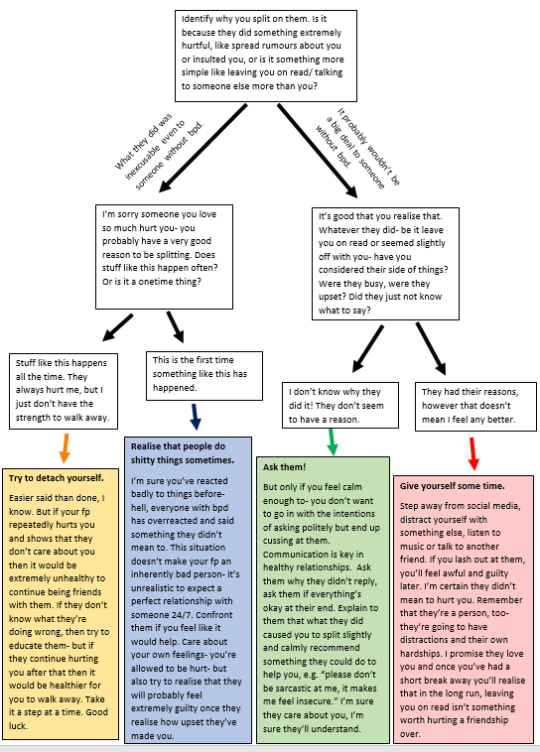 The diagnosis is recorded in the ICD-10 and is considered a subspecies of an emotionally unstable personality disorder. The disorder manifests itself in problems with self-esteem, the management of emotions and behavior, high anxiety and desocialization, and leads to unstable relationships with others. With borderline personality disorder, a person experiences a fear of being alone or abandoned. Misplaced anger, impulsiveness, frequent mood swings can alienate potential partners. nine0003
The diagnosis is recorded in the ICD-10 and is considered a subspecies of an emotionally unstable personality disorder. The disorder manifests itself in problems with self-esteem, the management of emotions and behavior, high anxiety and desocialization, and leads to unstable relationships with others. With borderline personality disorder, a person experiences a fear of being alone or abandoned. Misplaced anger, impulsiveness, frequent mood swings can alienate potential partners. nine0003
Advertising on RBC www.adv.rbc.ru
Deviations are usually recorded in young people and may worsen with age. However, many patients diagnosed with BPD are able to live a full life, having worked through the main problems.
Borderline Personality Disorder Test
Some of the symptoms may point directly to BPD, but only the attending physician will give exact information. If you suspect you have a disorder, answer a few questions:
- Do you have a fear of being alone that makes you act inappropriately? For example, constantly call a partner, try to be always near him.

- Have you had to change your mind drastically in relation to your partner, to move from love to hatred for no particular reason?
- Have you ever felt that you do not have a clear idea of yourself, that you are not sure of your self-worth?
- Have you committed impulsive dangerous acts? For example, have you taken drugs, spent large sums of money recklessly, or had unprotected sex? nine0041
- Have you harmed yourself, threatened suicide in the presence of loved ones?
- Do you experience severe mood swings, from anxiety and irritability to days of depression and apathy?
- Do you find it difficult to control your anger?
- When you find yourself in a stressful situation, do you feel as if you are disconnected from reality and your own body, do not control your thoughts and behavior?
If you answered “yes” to more questions, it makes sense to talk to a therapist. Symptoms do not always point to borderline personality disorder and may be due to other health problems.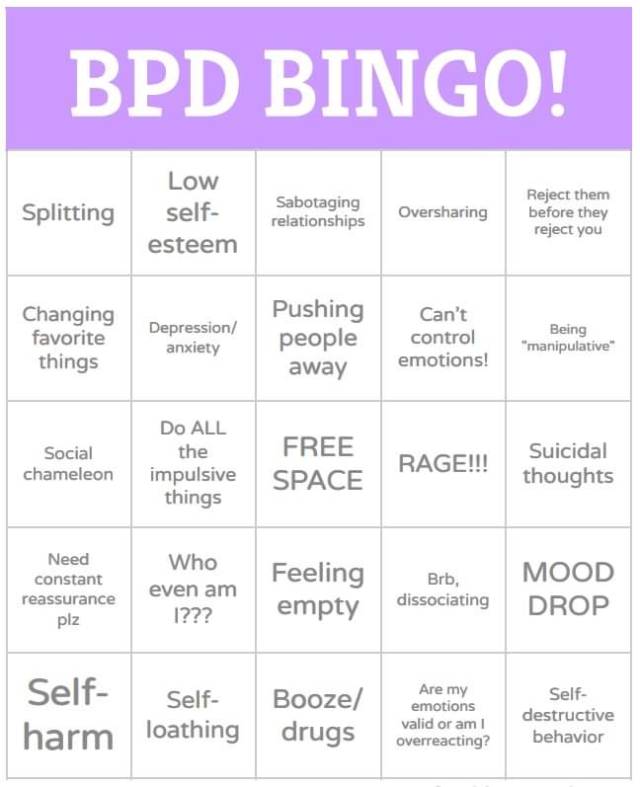 Only a specialist can make a correct diagnosis and give competent advice. nine0003
Only a specialist can make a correct diagnosis and give competent advice. nine0003
© Yuris Alhumaydy/Unsplash
Symptoms of borderline personality disorder
BPD affects how a person relates to himself and others, how he behaves in society. Signs and symptoms vary, there may be several, or just a couple from the list [2]:
- Strong fear of being abandoned. A person is ready to go to extreme measures to avoid the real or imagined withdrawal or rejection of a partner.
- Tendency to unstable relationships. For example, a person idealizes a partner, but at some point suddenly decides that the latter is cruel and unfair. nine0041
- Rapid changes in self-identification and self-esteem. Goals and values switch disproportionately to the circumstances - abruptly and for no particular reason. A person tends to consider himself bad, he needs impulses from the outside in order to feel alive and needed.
- Stress related paranoia. Loss of contact with reality lasting from several minutes to several hours.
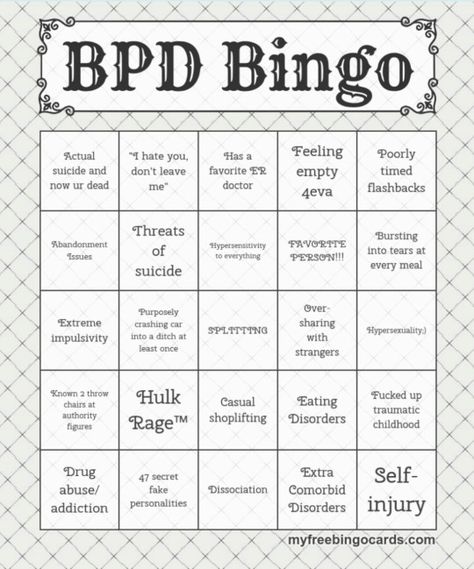
- Impulsive behavior, risk taking. Gambling, reckless driving, unsafe sex, alcohol abuse, overeating, drugs. nine0041
- Success sabotage. Sudden unreasonable rejection of positive relationships, good work.
- Self-mutilation, suicidal tendencies. Often occur in response to separation anxiety or partner rejection.
- Sudden mood swings lasting from several hours to several days. Bright, hypertrophied emotions: happiness, anxiety, shame and irritability.
- Constantly accompanying feeling of emptiness, lack of interest in what is happening. nine0041
- Aggression - strong anger, cruel sarcastic remarks to interlocutors, fights.
Causes and risk factors
As with other mental health problems, the causes of borderline personality disorder are not fully understood. In addition to circumstances such as childhood abuse or neglect, borderline personality disorder may be associated with the following factors.
- Genetics.
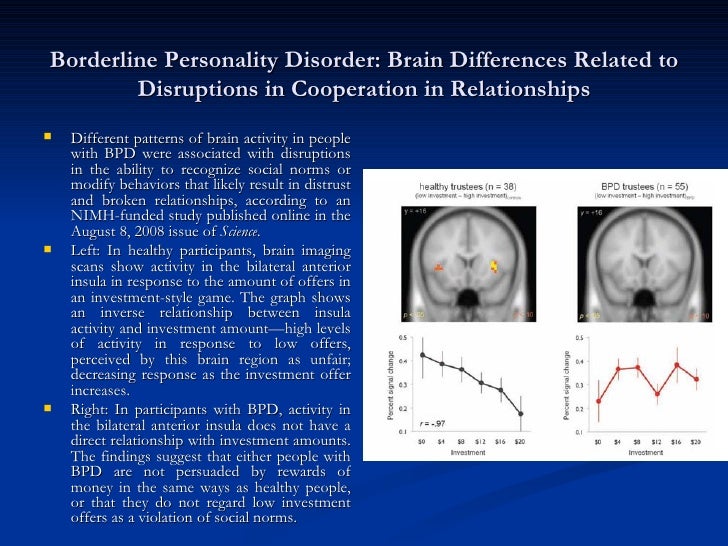 Studies involving twins and their relatives suggest that BPD may be inherited and be part of a mental health complex [3]. nine0041
Studies involving twins and their relatives suggest that BPD may be inherited and be part of a mental health complex [3]. nine0041 - Anomalies of the brain. Several studies have confirmed changes in certain parts of the brain involved in the regulation of emotions, especially impulsivity and aggression [4]. Patients with BPD may have malfunctions in the regulation of chemicals, such as the production of serotonin, which affects mood.
Is there a cure for borderline personality disorder
BPD is difficult to treat. But with the help of modern, evidence-based therapies, people with the disorder can be helped to manage their symptoms and improve their quality of life. It is good if the treatment is carried out by a licensed doctor who specializes in this disease. Sometimes the patient will need to interact not only with a psychiatrist, but also with a social worker who will help to adapt in the absence of loved ones. nine0003
The doctor usually conducts an interview and discusses the person's symptoms.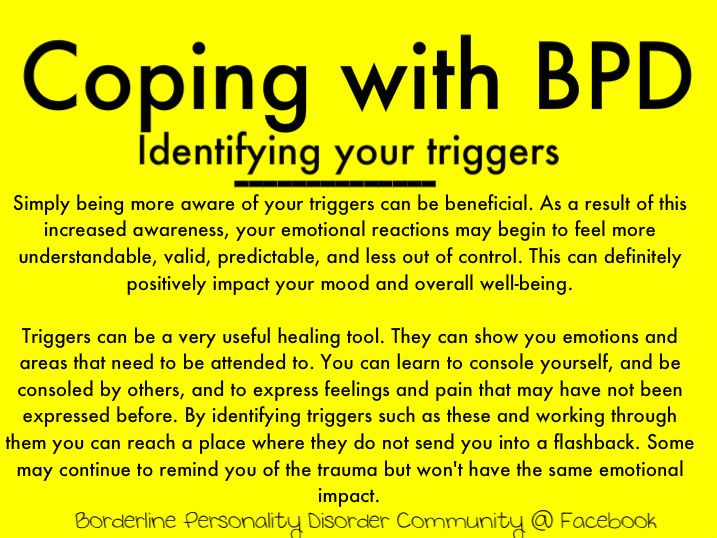 Then there is a thorough medical examination and testing, which allows you to exclude other diseases. Comorbid disorders can make BPD difficult to diagnose and treat, especially if their symptoms overlap. For example, a person may show signs of depression, bipolar disorder, anxiety, substance use problems, or eating disorders. If a patient with borderline personality disorder does not receive proper treatment, they are more likely to develop chronic illnesses. And not only mentally, but also physically - patients with BPD tend to make choices in favor of an unhealthy lifestyle and self-harm. nine0003
Then there is a thorough medical examination and testing, which allows you to exclude other diseases. Comorbid disorders can make BPD difficult to diagnose and treat, especially if their symptoms overlap. For example, a person may show signs of depression, bipolar disorder, anxiety, substance use problems, or eating disorders. If a patient with borderline personality disorder does not receive proper treatment, they are more likely to develop chronic illnesses. And not only mentally, but also physically - patients with BPD tend to make choices in favor of an unhealthy lifestyle and self-harm. nine0003
Psychotherapy is the first line of treatment for a person with BPD. It can take place both individually and in a group. The second option helps the patient to interact with other people and express himself in society. Most often, the doctor uses one of two therapy options, or combines them:
- Dialectical Behavioral Therapy (DBT). It uses the concepts of awareness and acceptance of the current situation and emotional state.
 DBT also teaches skills to control and reduce self-destructive behavior. nine0041
DBT also teaches skills to control and reduce self-destructive behavior. nine0041 - Cognitive behavioral therapy (CBT). This type of assistance allows you to identify and change the core beliefs that underlie inaccurate acceptance of yourself and others, as well as problems associated with communication.
Because their benefits are unclear, medications are not commonly used as the primary treatment for borderline personality disorder. However, in some cases, a psychiatrist may recommend medications to treat certain symptoms, such as controlling mood swings and depression. The psychotherapist should specialize in borderline personality disorder, that is, receive additional education in this area. nine0003
How to communicate with a person with BPD
People with BPD are often very suspicious and vulnerable. They need support, and it is important for them to realize that they have someone to turn to in case of exacerbations. Eliza Gordezki, a writer, artist and queer feminist with BPD, has developed a manual for interacting with people who have been diagnosed with BPD [5].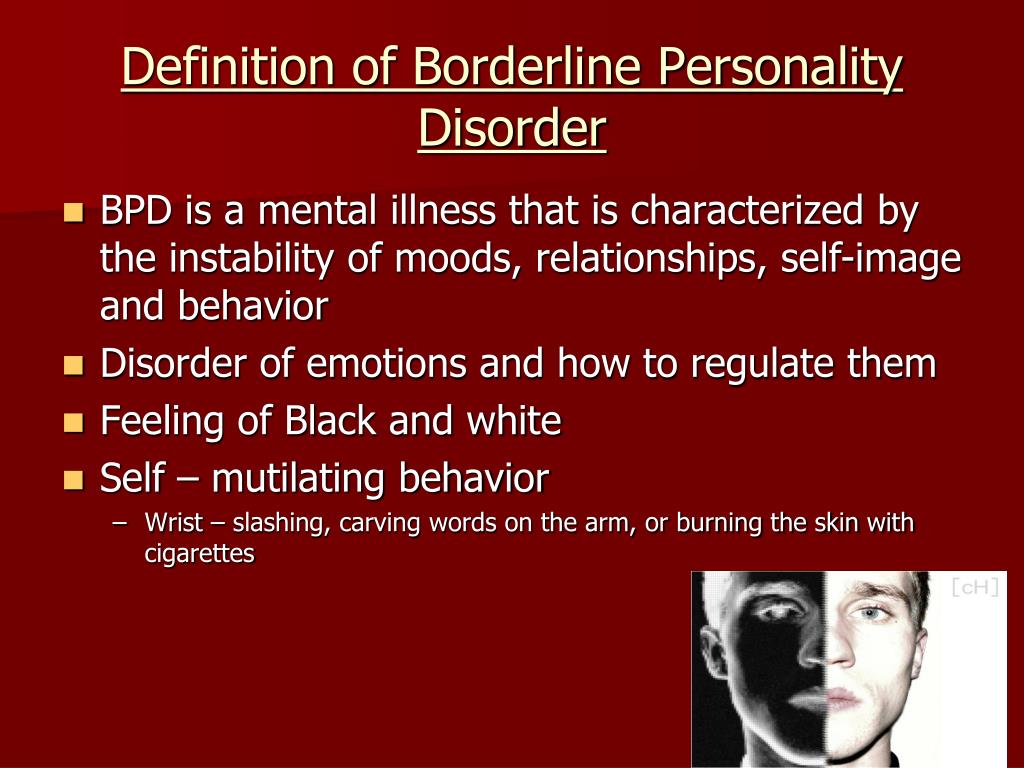 Here are the main recommendations.
Here are the main recommendations.
Tell loved ones that you will take care of them
People with BPD tend to think that if they do not hear this confirmation, then others around them are indifferent. Suitable phrases:
- "Just writing to you to tell you I care about you."
- "I wanted you to know that I'm thinking of you right now."
- "I love having you in my life and I wanted to make sure you knew that."
Take an interest in well-being and affairs
For people with BPD, this is a vicious circle: they are afraid of being rejected, so they do not share their experiences in order to eliminate the risks of negative reactions from others. Asking how you are doing is a good strategy for making contact. nine0003
- “Hi, how are you?”
- “I saw you posted a sad post on Facebook. I wanted to make sure you were okay."
Soften bad news with support and sympathy
When you tell your loved one some unpleasant information, try to remind him that he is important to you and that you will support him in any case.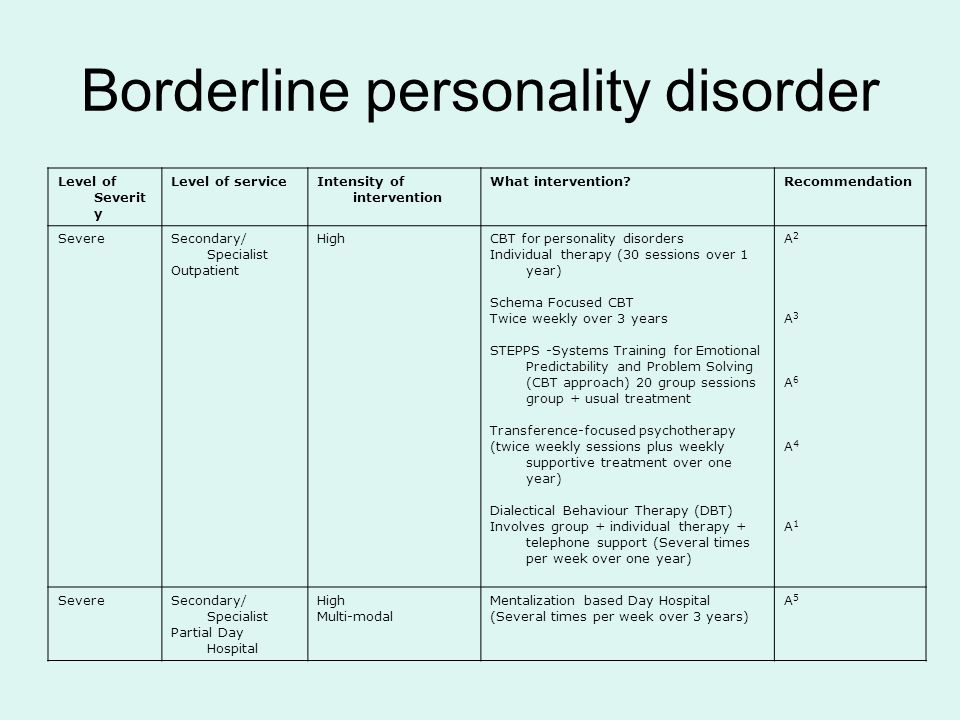 A person with BPD needs to be aware that his feelings are taken into account and not perceived as something feigned.
A person with BPD needs to be aware that his feelings are taken into account and not perceived as something feigned.
- "It's not easy for me to support you in this crisis, but I need to know what to do to make it easier for you to deal with it."
Match words
Marsha Linehan, who developed the Dialectical Behavior Model (one of the most common treatments for people with BPD), uses specific vocabulary in her manuals [6]. Rather than characterize a person or their actions with judgmental words, she prefers adjectives such as "efficient, skillful, and wise" (or the reverse, "inefficient, inept, and unwise"). These words separate a person from his behavior, they name qualities that can be changed. If someone is being violent, negative, or insulting, you can say something like:
- “I can see you're upset. I understand why you are upset, but these actions are very inefficient and will not bring you the desired results. Let's think together how we can achieve greater sense and achieve the desired prospects.
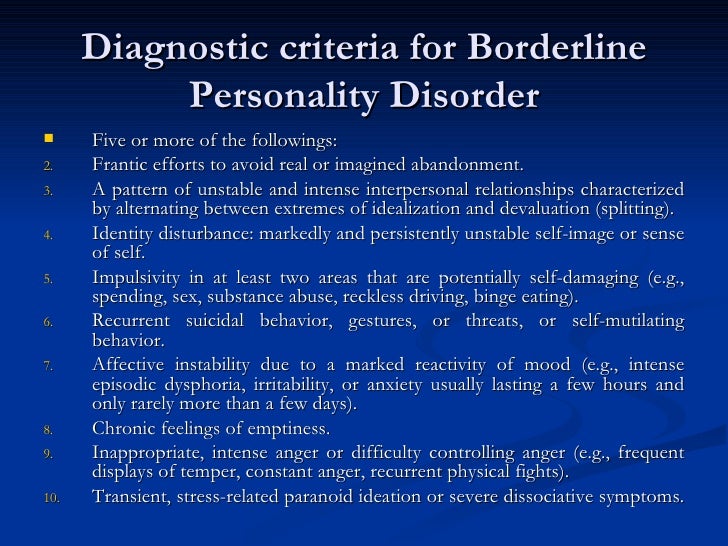
Compare this phrase with those that many are used to using in similar situations: “It's not normal if you react like that!”, “It's impossible to communicate with you, there is too much drama”, “Why are you overreacting? You are always so sensitive!” nine0003
© Pavel Danilyuk/Pexels
Be attentive to triggers
The only way to determine what is bothering a loved one is to ask and observe. Among people with BPD, two triggers are common (eng. trigger - a reason, a trigger; in psychology - an irritant that causes a certain reaction) - to be thrown and to be rejected. Simple situations that most people are used to can cause a strong negative reaction with borderline personality disorder. For example, if you reschedule a meeting or began to devote more time to other things, did not respond to a message for a long time, or forgot to call. Of course, changing plans is normal, but when communicating with a person with BPD, it is worth taking a little time to explain your actions to him:
- “I remember that we planned to meet on Friday and have dinner together, and I'm sorry, but I have to cancel this meeting.
 I was assigned to make an urgent report, and I will be at work all evening. It will be great if, along with the cancellation of plans, you offer a quick alternative: “But I really want to spend time with you! Maybe we can meet on Saturday for lunch?
I was assigned to make an urgent report, and I will be at work all evening. It will be great if, along with the cancellation of plans, you offer a quick alternative: “But I really want to spend time with you! Maybe we can meet on Saturday for lunch?
Repeat and confirm
People with BPD need to be reminded of your positive attitude. Frequent reinforcement and support is an important part of their well-being and confidence in the world. Be patient and focus on good moments, convince your loved one if he breaks into negative emotions, even if it seems to you that they are unreasonable. For example, your friend is upset that they don't reply to a message. At this point, he may seriously believe that the interlocutor hates him. Inform that this is not the case, most likely, the person is just busy, he will definitely write or call as soon as he has time. nine0003
What works well for one person may not work for another, so it's always best to talk to your loved ones and ask what they need.
Expert comment
Andrey Yudin, psychologist, Gestalt therapist, co-founder of Stemning Gestalt Center
It is not always possible to build relationships with a person with BPD [7]. But if it's not a destructive abusive relationship and it's important for you to keep the relationship going, you need to put in a lot of effort. First of all, set boundaries - when you can come or call, whether you can shout. Sometimes it can take years to rebuild, especially when it comes to older relatives. It will take a lot of labor and therapeutic support. nine0003
Borderline personality disorder is one of the three basic personality disorders in modern psychotherapy, the other two being schizoid and narcissistic. BPD is the most well studied and isolated, it is in the public eye due to its clinical manifestations. The disorder is included in the ICD-10, but the difficulty lies in the lack of uniform criteria for the diagnosis. There are three obvious signs of borderline personality disorder:
- The person does not take care of himself.
 For example, he does not visit doctors, while experiencing guilt and shame for his choice. This factor applies to both hygiene and personal relationships. nine0041
For example, he does not visit doctors, while experiencing guilt and shame for his choice. This factor applies to both hygiene and personal relationships. nine0041 - Approach speed. People with BPD tend to quickly make contacts and just as quickly become disillusioned with new acquaintances, friends, and romantic relationships.
- Extreme fear of rejection. If a person is afraid of being abandoned, being rejected by relatives, friends or partners, then this is a clear sign of BPD.
With BPD, there is a clear lack of self-activation - urging oneself to some kind of action. At the same time, it is difficult for a person to explain to himself why he cannot do this. Trying to rouse himself to action, he begins to worry. Borderline personality disorder begins in childhood, between 16 and 24 months. It is often the result of severe abuse, physical, emotional or sexual abuse, or a parent's negative response to a child's need for emotional closeness. In the case of premature separation, a mental structure is formed from two separate parts, which normally should be integrated into each other, but in BPD these are two separate modules.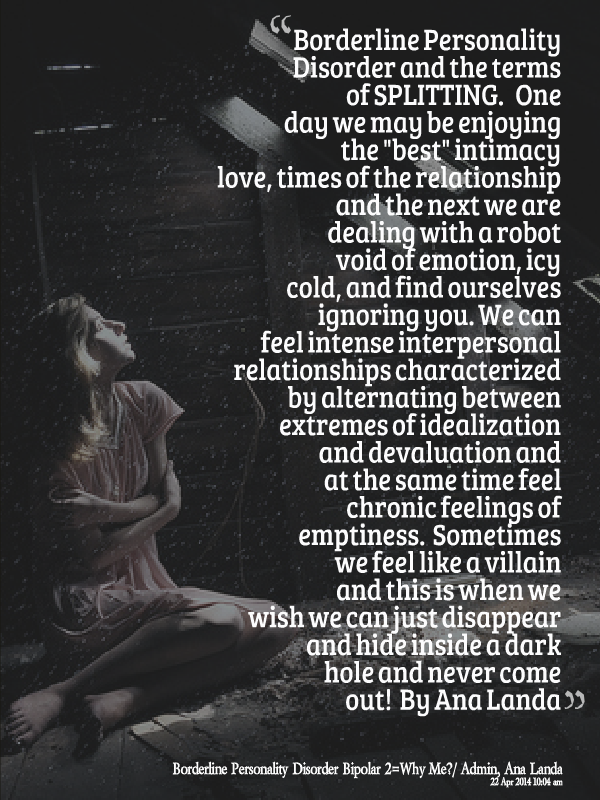 nine0003
nine0003
BPD is often associated with drug addiction. Suffering, feelings of frustration, dissatisfaction encourage a person to chemically regulate his emotional state. This is alcohol, and drugs, and self-damaging behavior, and not only in relation to the body. For example, a person can spend all the money on payday.
As for BPD during adolescence, for this stage of human development, many of the "symptoms" are actually normal behavior. Severe emotional experiences, dulling the sense of self-preservation, experiments with substances and partners. But from the age of 16-18, when the transitional stage has been passed, the persistence of these signs may be a reason to contact a specialist. nine0003
Those close to people with BPD face, first of all, their emotional instability. The biggest difficulty is the chaotic influence on the lives of others. If a person with a narcissistic disorder extends his suspiciousness to the assessments of others, then with BPD people tend to have a different focus - love / not love, rejection / acceptance.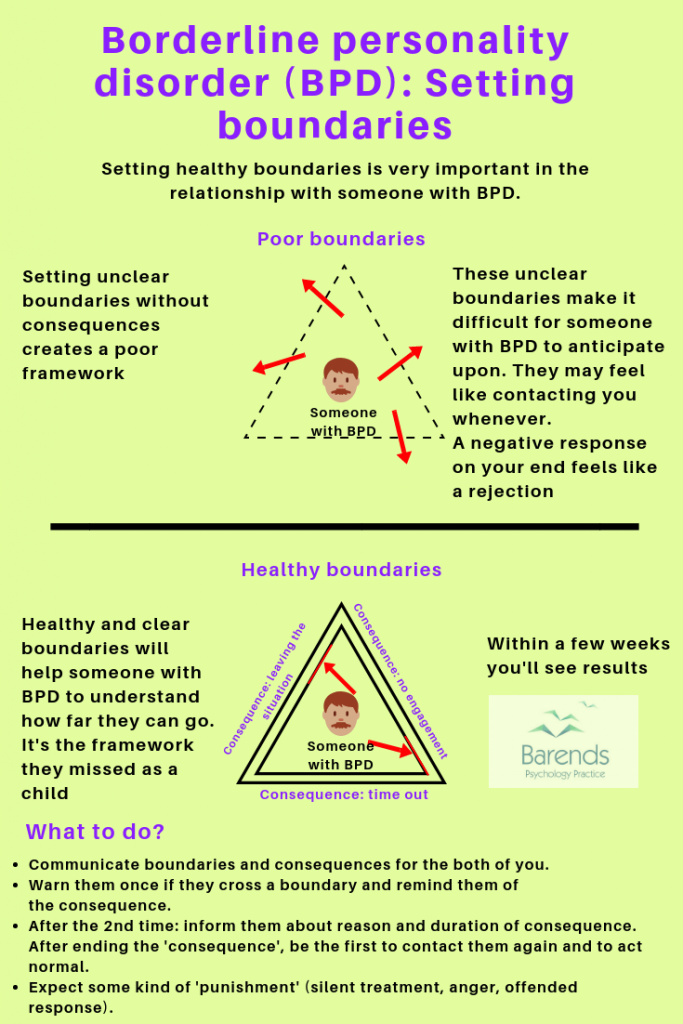 A person may try to return the location of the partner or play ahead of the curve - break off the relationship, if he assumes that he may be abandoned. People with BPD may become abusers because of the unbearable emotional experiences they are trying to change in this way. nine0003
A person may try to return the location of the partner or play ahead of the curve - break off the relationship, if he assumes that he may be abandoned. People with BPD may become abusers because of the unbearable emotional experiences they are trying to change in this way. nine0003
In the professional field, BPD can be suspected, for example, in rock stars. Moreover, the presence of such a feature for people in this profession will even be a plus. There will be a lot of life and pain in their work, it is very sincere and can be healing for other people.
If you encounter a person with BPD at work—a boss, a colleague, a subordinate—they are likely to have fairly loose boundaries because they find it difficult to set and maintain them. This may be a person who perfidiously treats other people's borders or, conversely, distances himself and avoids communication. People with BPD are very successful. Such bosses have reactive behavior, chaos in the department, and many will be uncomfortable.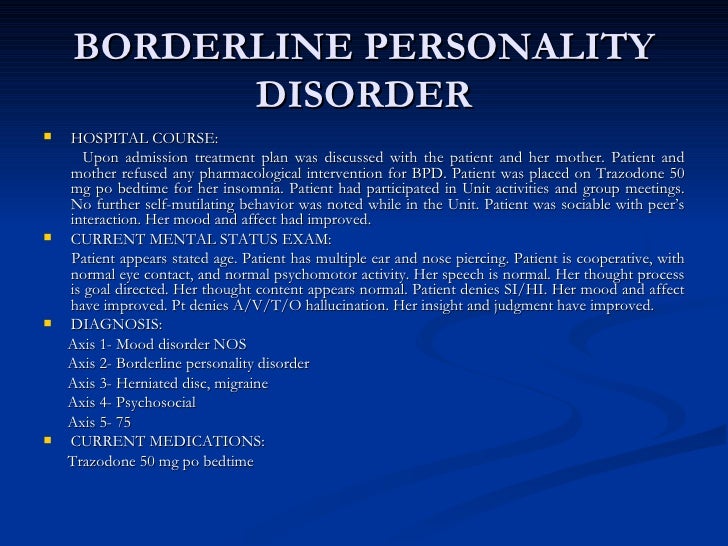 But there are qualities in BPD that are good for management: empathy, intuition, even being aggressive can be an asset for career advancement. nine0003
But there are qualities in BPD that are good for management: empathy, intuition, even being aggressive can be an asset for career advancement. nine0003
The diagnosis and treatment of borderline personality disorder requires a specific set of skills that are not taught in psychology departments, at least not in basic education programs. Most psychologists do not have such qualifications; a maximum of 10% of practicing specialists have it. Therefore, educational work is especially important so that people can find the understanding and support that are so needed. The peculiarity of therapy for BPD will be directed to the very two modules of consciousness (patterns) of the patient. A person with BPD may go to the doctor from their positive childhood pattern and talk about how well the treatment is working. He does this because he is used to being held in relationships in this way, he has learned that he must give positive emotional nourishment "so as not to be abandoned." The therapist must frustrate this pattern, help to go beyond it.





